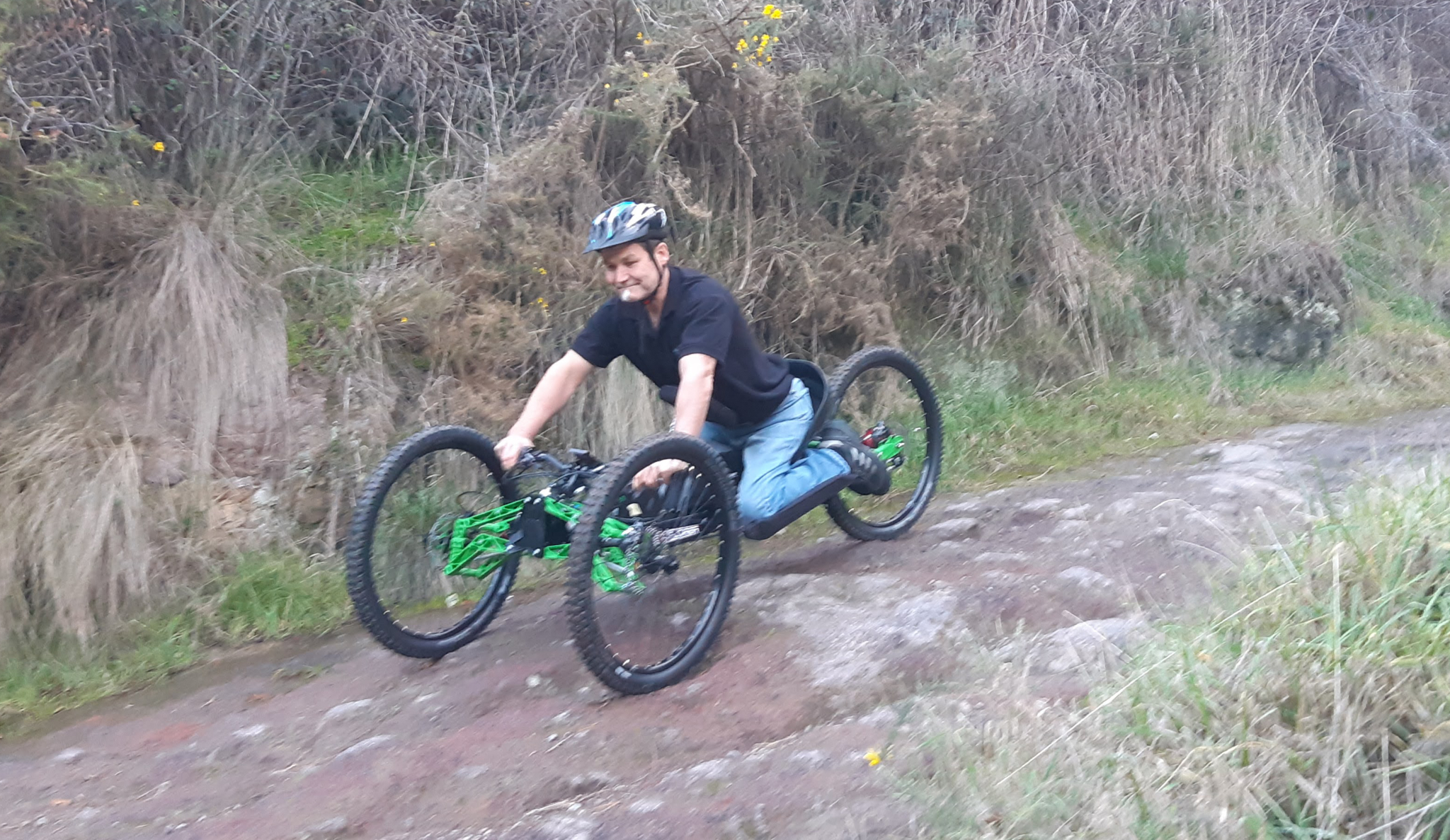Staff Appreciation Post: Mark McIntosh
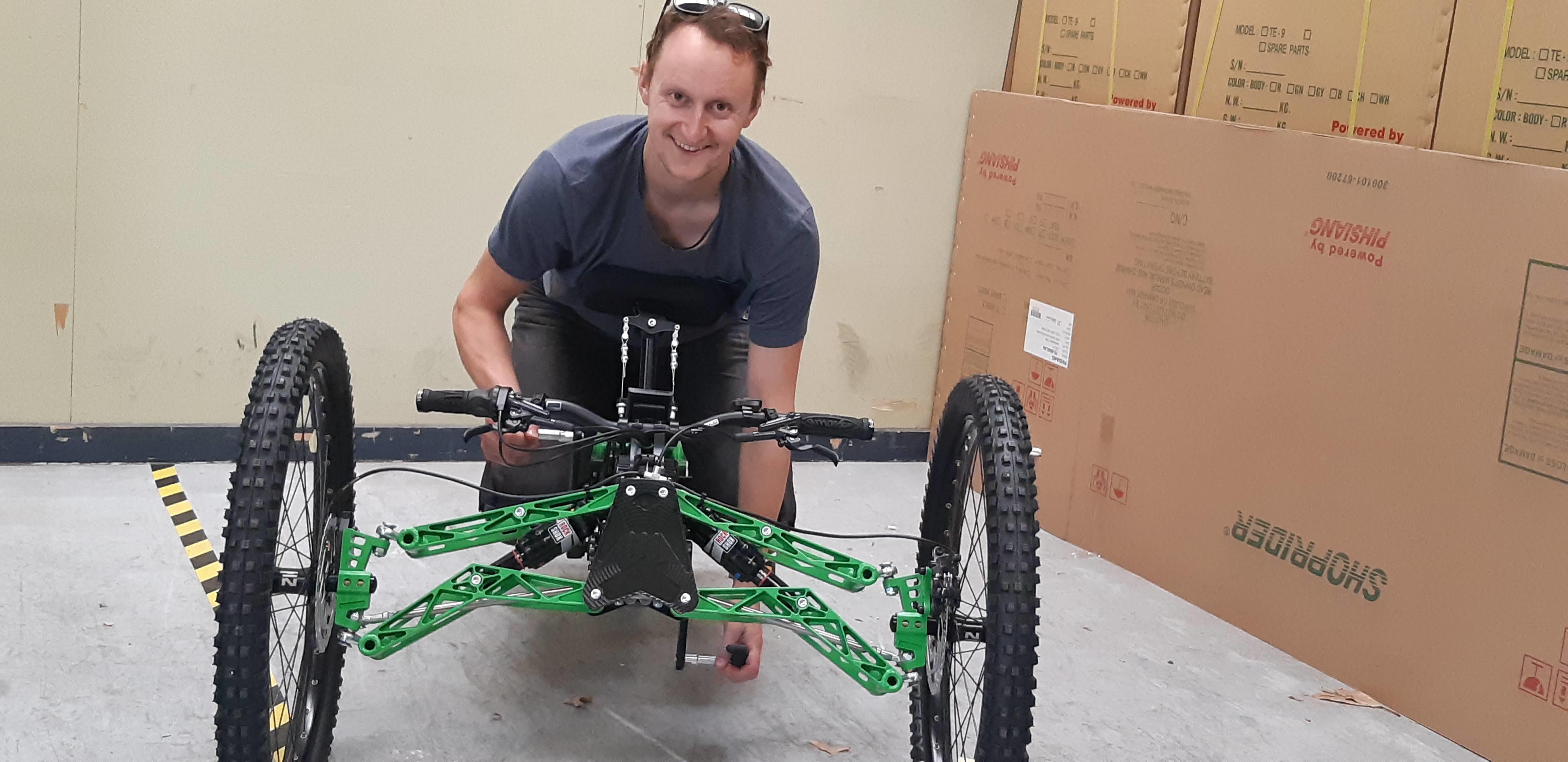
Mark McIntosh is one of our physiotherapists at the Laura Fergusson Brain Injury Trust. Working within both our assessment and community rehabilitation teams, his day-to-day work varies, and can see him visiting clients across a range of locations and backgrounds.
Mark has a real passion for the ‘weird and wonderful’ or problems ‘in the too hard basket’ that requires a bit of lateral thought. These may be spinal clients that have been told they “can’t swim in the sea again”, amputees that “can’t ride a mountain bike anymore” or brain-injured clients that “couldn’t possibly ski anymore”.
This usually starts as a problem-solving exercise with the client, requiring an abstract solution, but a solution nonetheless. Normally a modification of technique, mindset, and/or equipment, collaborating with the client to find the “ultimate goal” of what they really want to achieve since their world has changed its course from what they had planned.
“I’ve got quite a varied caseload at the moment. I’ve got a few amputees, spinal cord injuries, a few concussions, so I’m normally buzzing all over the place.”
After qualifying as a physiotherapist in the UK in 2010, Mark has been working in New Zealand for around six years. Also a volunteer adaptive ski instructor at Disability Snow Sports Canterbury and operational Land Search and Rescue volunteer, Mark’s background in adaptive sports and the outdoors has led to a keen interest in the integration of adaptive equipment and rehabilitation, which is what he enjoys most about his role.
Below are a few stories that Mark has shared, each one exemplifying problems that he and his clients work to overcome. It is a great insight into the process of his projects. We are super grateful for his amazing work and are looking forward to hearing about future success.
Walking to the top of the Port Hills
I was working with a young woman with an incomplete spinal cord injury, her primary goal was to be able to walk unaided up to the top of the Port Hills. After many months of intensive rehab and adjunctive pieces of equipment, this lady had the strength, skills, endurance, and confidence to achieve her goal and walk up to the top of the hills.
This lady did so well that she decided to walk back down and therefore didn’t need her wheelchair so I naturally had to roll down in it, complete with her dog on my lap who was too tired to walk back down!
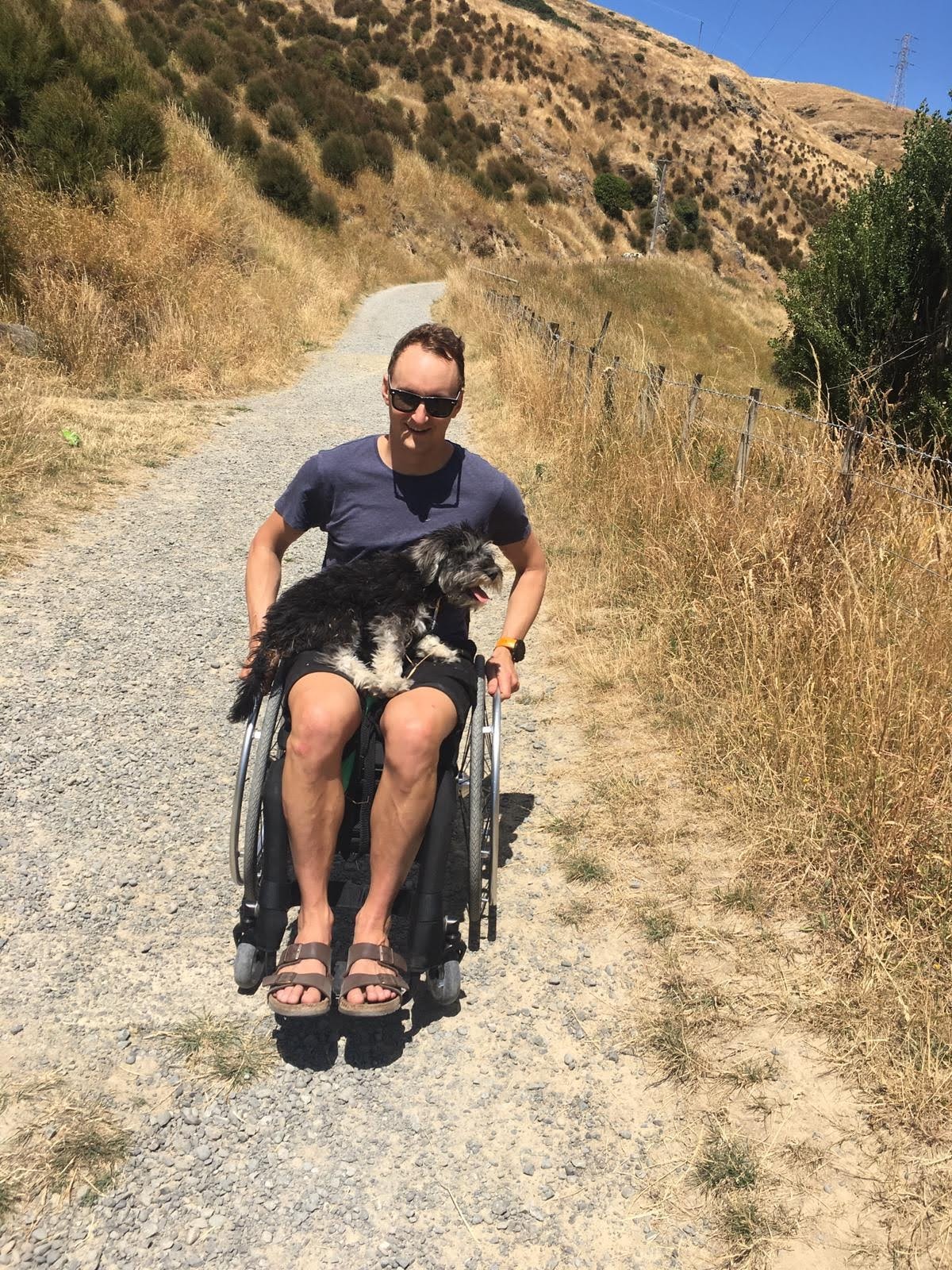
In the end, this lady really thrived and became more ambitious with her goals and aspirations. I supported her with her new goal to ride the Otago Rail Trail with her family on this ACC-funded XCR power-assist hand bike. She can load this into her car and go away with friends and family. As you can see she’s pretty chuffed with the result.
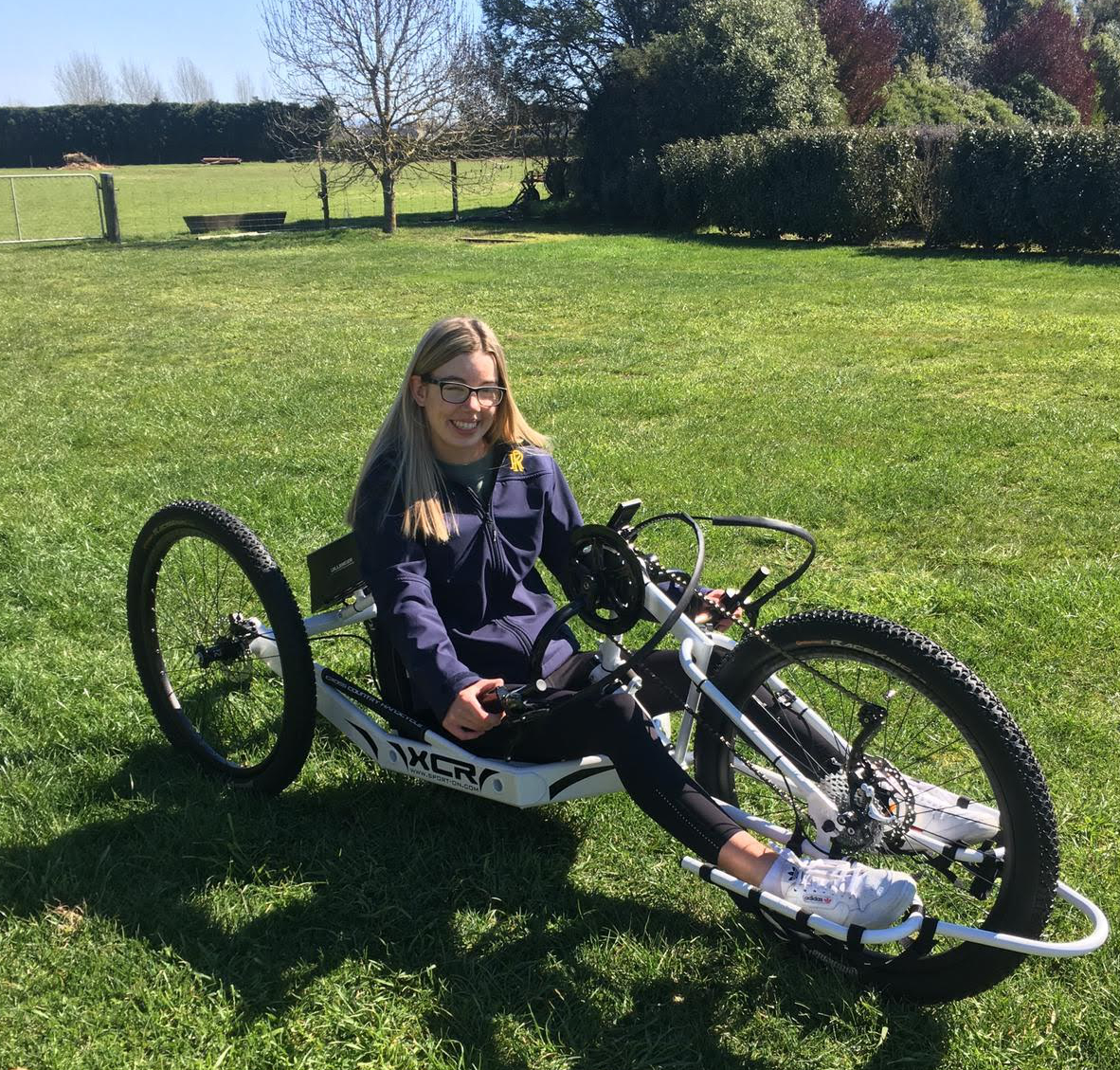
Suspension required!
I was referred a man with a spinal injury who had been throwing himself down the Port Hills on a manual no-suspension-prone hand trike (quite a mouthful I know). Essentially, it’s a hand-powered hand trike with no suspension that had caused him to injure both elbows as a result of the repetitive vibrations through his upper limbs.
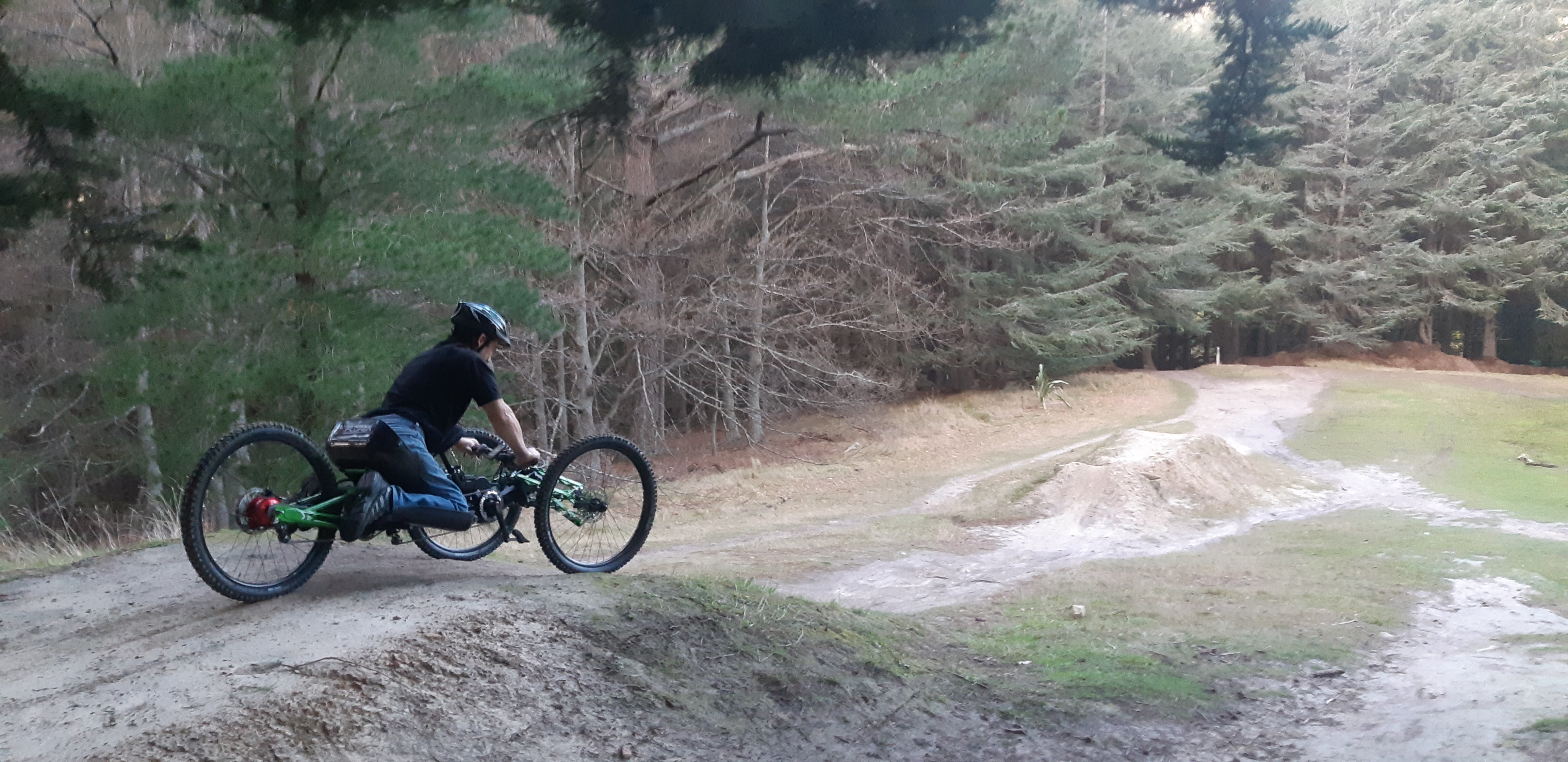
We trialled an updated full-suspension prone Explorer trike. The trial involved me trying to keep up with the client on my mountain bike whilst he tested the limits of the trial trike. A great result and it really opened my mind to the types of terrain these clients can aspire to traverse with the right equipment and skillset after their injuries.
